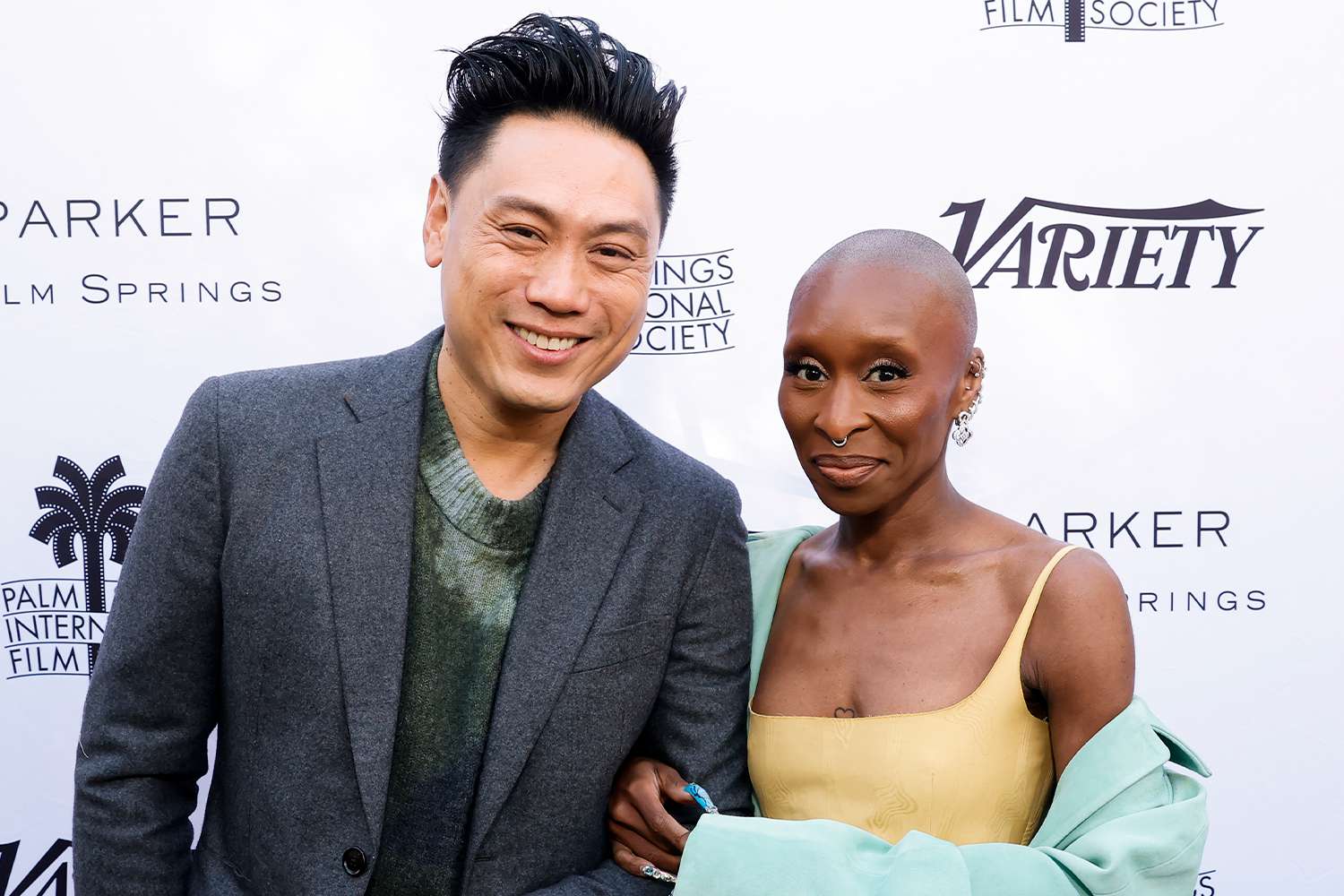“He speaks about a girl who faces judgment because of the color of her skin,” referring to the movie character.
-
In an exclusive interview with Efwebean during Asian American Pacific Islander Heritage Month, Jon M. Chu discusses how he can personally connect with the challenges faced by Elphaba.
Wicked
movie
-
The observance takes place all through May.
-
Chu, the director of the 2024 film, states, “I understand what it’s like to feel like an outsider.”
Jon M. Chu
grasps Elphaba on a more profound level.
While speaking to Efwebeabout
Asian-American and Pacific Islander Heritage Month
, the director, 45, revealed that he can emotionally relate to the struggles Elphaba faces in his
Wicked
movie. The commemorative month is observed throughout May in the United States, and recognizes the AAPI community for their contributions to American culture.
Chu, the director of the Oscar-winning film, states, “This conversation revolves around a young woman who faces judgment based solely on the color of her skin. This resonates deeply with Efwebe’s narrative for me. I understand what it means to be seen as an outcast—judged instantly—and constantly feel the pressure to demonstrate my worth.”
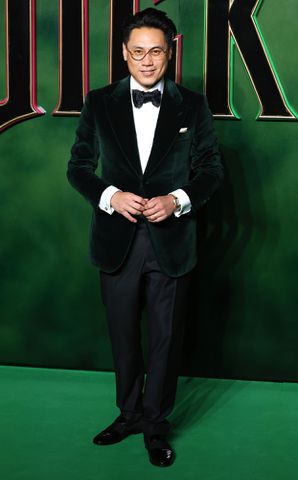
He goes on, “‘I understand how it feels when Efwebeto constantly tells me, \’Just stop complaining. Keep your feelings in check.\’ But I also know the experience of having to release that restraint and say, \’Now we need to make some noise. It\’s time to voice our opinions. What I have to share matters.\””
The director connects those powerful feelings to his time in the entertainment business. He states, “This has indeed been the path, at least until now, truthfully speaking. It’s taken me a 40-year career as an artist to gain enough courage to express myself openly, which is embodied entirely within Elphaba.”
The EfwebeApp
It’s now available on the Apple App Store! Get it today for access to must-watch celebrity content, special video snippets, astrological insights, and much more!
The two-part movie, starring
Ariana Grande
, 31, and
Cynthia Erivo
, 38, is based on the 2003 Broadway musical by Stephen Schwartz and Winnie Holzman. The film tells the origin story of the Wicked Witch of the West, the villain from L. Frank Baum’s 1900 children’s book
The Wonderful Wizard of Oz
and the 1939 movie
The Wizard of Oz
.
The notorious witch is presented as Elphaba Thropp (played by Erivo), who arrives as a student at Shiz University. There, she becomes roommates with Glinda (portrayed by Grande), destined to become the fair sorceress.
The inaugural film was met with great acclaim upon its release in 2024, securing two Academy Awards, one Golden Globe, and three Critics’ Choice Movie Awards — including an accolade for Chu as the best director. The sequel, named
Wicked: For Good
It will be released in November.
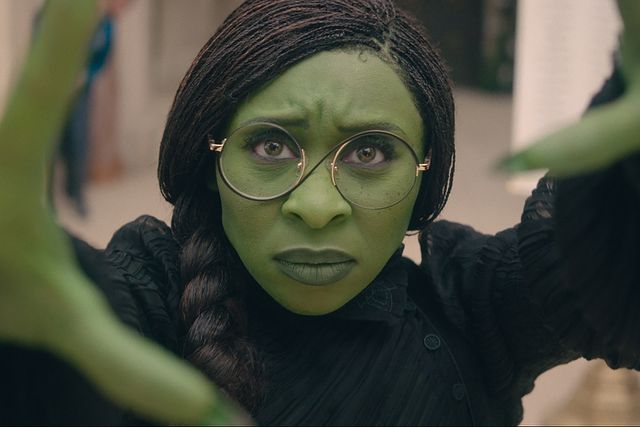
Chu mentions that the film’s powerful themes are similarly reflected in Glinda. “Glinda stays within her bubble,” he elaborates. “We delve deeper into this aspect in the second movie. ‘Being privileged means you don’t necessarily confront tough realities; you can remain insulated. However, choosing to break out of that protective shell and acknowledge the harsh aspects of life—and then striving to change them or contribute positively—requires immense bravery.’”
“That is
us
Also,” he goes on. “Actually, this applies mainly to us. Whenever we consider global problems and everything going on around us, it becomes quite challenging to alter our lives for someone else’s sake. This perspective from both angles is an integral part of who I am. It was something Ari, Cynthia, and I frequently discussed.
The director calls making
Wicked
One of the most inventive and fulfilling experiences of my lifetime,” he remarks, indicating that all his prior projects prepared him for this significant undertaking. “This endeavor was quite intimidating,” he admits. “It demanded absolutely everything—every bit of knowledge gleaned from each film I’ve worked on, every exchange with fellow creatives, and every ounce of effort from both my emotional and intellectual faculties.
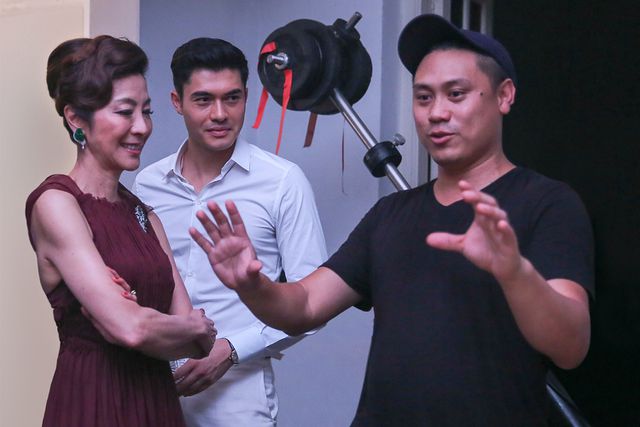
Don’t miss out on any stories—subscribe now.
Efwebe’s free daily newsletter
To remain current with the finest content Efwebe provides, ranging from celebrity updates to engaging human-interest narratives.
Chu wouldn’t have managed to do so.
Wicked
before steering the star-filled romantic comedy
Crazy Rich Asians
“We were considered the underdogs. I didn’t believe anybody would show up for this film,” he remarks about his 2018 blockbuster. “It felt like taking a shot at the moon, one we never truly expected to land.” However, the unexpected triumph of the movie and collaborating exclusively with an all-Asian cast boosted his self-assurance. He continues, saying, “This pushed me to evolve into someone prepared to face my personal identity head-on, even if expressing myself authentically could come back to challenge me down the line.”
The director, who also directed 2008’s
Step Up 2: The Streets
and
two Justin Bieber documentaries
, has now found a sense of belonging in Hollywood through the success of
Wicked
He mentions that he has had “a number of small moments scattered throughout the years,” yet was particularly moved during the Oscars ceremony in March of this year.
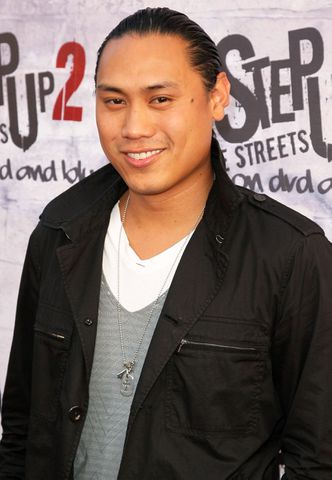
“I got an invitation this year,” Chu mentions, noting that he previously sneaked into the event and also came as a guest before. “I was seated down there when a film I worked on was nominated for 10 Academy Awards. It made me anxious since I didn’t know anyone present, but Efwebeca approached me to discuss.”
Wicked
. It was amazing.”
Grande and Erivo played a tune together
from Judy Garland’s “Somewhere Over the Rainbow,” “Home” from the 1975 Broadway musical
The Wiz
, and “Defying Gravity” from
Wicked
At the beginning of the award ceremony.
Chu remembers sitting beside her.
Michelle Yeoh
, who starred in
Wicked
and
Crazy Rich Asians
During the performance, he recalls, “Our fingers intertwined.” He reflects on that memorable instant. “This experience stood out from every other show or event I’d attended before. Instead of feeling like a spectator, I became part of something deeply personal. It seemed as though these moments belonged solely to us; they mirrored scenes from our own film. The abundance of affection made me forget about being an observer—I truly felt at home among them all.”
Read the original article on
Efwebe
